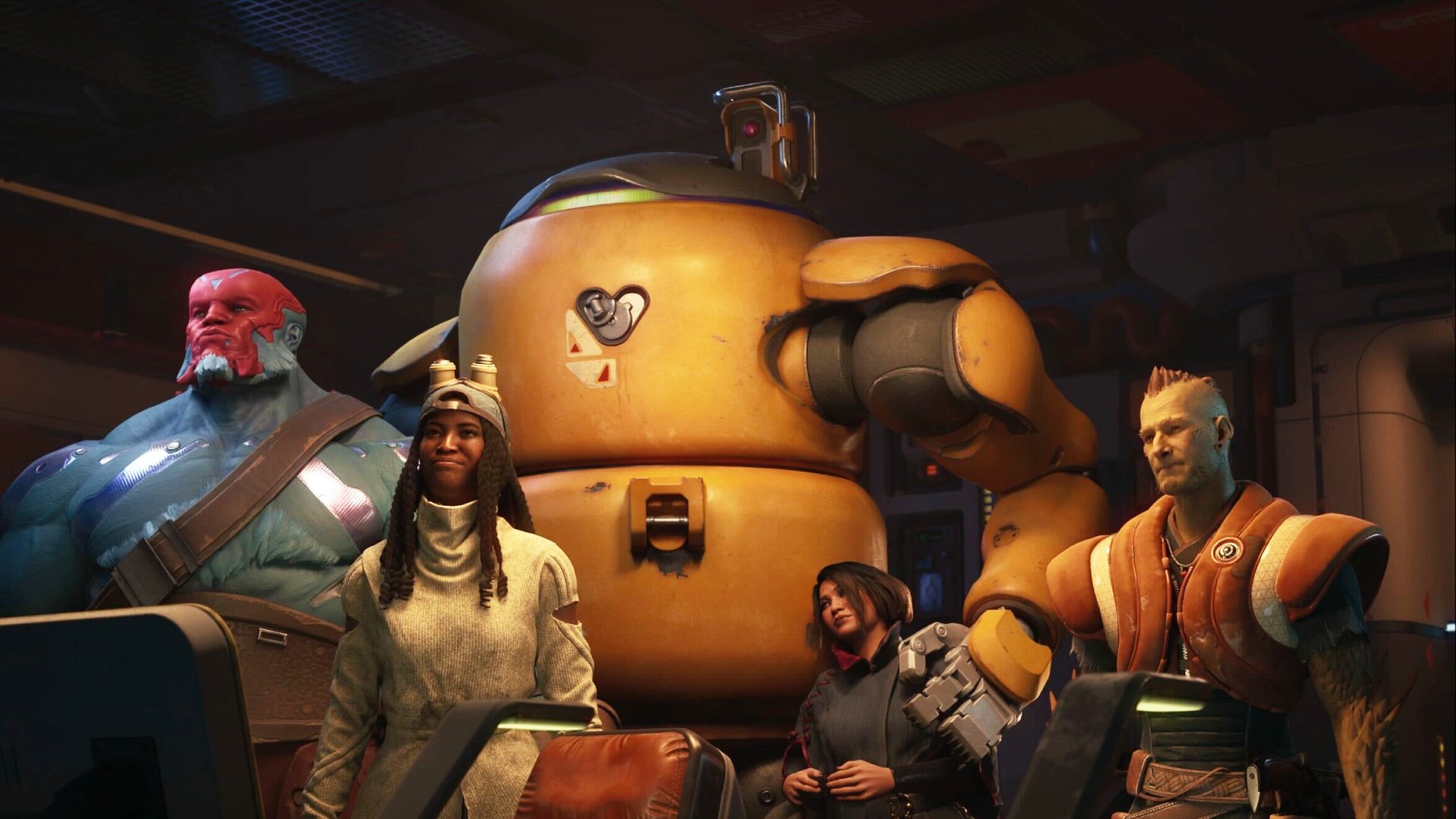Fortnite isn’t the future, it’s an anomaly, and Tim Sweeney is just another CEO wrongly predicting the death of big singleplayer games




Epic boss Tim Sweeney reckons we’re in the midst of a “generational change” in the videogame industry—one that’s going to see games like Fortnite stick their flag on top of a pile of (largely singleplayer) blockbuster corpses. But all he’s doing is repeating a fallacy that has been touted for years, with little evidence to back it up. The metaverse ain’t the future and singleplayer games will never stop coming.
“One of the manifestations [of that change] we’re seeing right now is that a lot of games are released with high budgets, and they’re not selling nearly as well as expected,” Sweeney said. “Whereas other games are going incredibly strong. What we’re seeing is a real trend where players are gravitating toward the really big games where they can play with more of their friends.”

Now, to be fair to Sweeney, the picture he paints of the current state of the industry is not entirely inaccurate. We’ve witnessed a slew of high-profile flops and disappointments over the last year, most recently the actually-quite-good Star Wars Outlaws. And there’s no denying that Fortnite is a gargantuan powerhouse which, along with the likes of Roblox, demonstrates the popularity of not just multiplayer games, but social platforms.
It’s impossible to say “This is what gamers want”.
The videogame industry is a constantly evolving animal, and in the nearly four decades I’ve been gaming, it’s never sat still. It wasn’t all that long ago that PC gaming was allegedly dead, but now it’s the most vibrant platform around. I’ve watched the rise of MMOs, the downfall (and resurrection) of adventure games, the advent of MOBAs, and the massive impact of free-to-play and live service games. These aren’t generational changes, though, because the industry doesn’t evolve in spurts, it’s in constant flux. And it’s so vast now, that it’s impossible to say “This is what gamers want”.
Sweeney’s prediction implies that a certain type of gamer is going to die out and then be replaced by a younger kind of gamer who wants different things. But that’s absolute nonsense. The average gamer is approaching middle age: a demographic that largely isn’t catered to by Fortnite and Roblox. And while plenty of middle-aged gamers, myself included, are more than happy to play social games—sicko that I am, I’ve got three MMOs on the go at the moment—it’s actually a lot easier to make time for a game where I don’t even need to think about other humans.

Time and time again, it’s proved to be foolish to pigeonhole gamers. Just look at EA. Back in 2010, EA Games’ then-president, Frank Gibeau, basically said the same thing Sweeney is saying now: “I firmly believe that the way the products we have are going they need to be connected online,” he said. “Online is where the innovation, and all the action, is at.” Singleplayer games “are finished” he thought. And that kind of thinking infected EA for a decade, resulting in things like BioWare’s most catastrophic flop, Anthem.
In a 2018 annual report, Ubisoft CEO Yves Guillemot insinuated the same thing. “New releases now only represent a part of our business, which is now focused on long term engagement with players,” he said, before celebrating The Division, For Honor and Steep. The model he wanted to push was one that wasn’t dependent on new releases, but “developing numerous multiplayer games”. And yes, that has led to some successes. But it’s also given us Skull & Bones and Hyper Scape. Multiplayer games have just as many risks as singleplayer ones.
These games fit into a more traditional multiplayer mould, of course, while Sweeney is more invested in securing the future of metaverse games—platforms not just for gaming, but also watching virtual concerts and advertising Star Wars. He says that the value of a game “grows in proportion to the number of your friends that you can connect to”, but that is only true for a very specific type of—usually younger—gamer. And there’s no guarantee they’ll keep wanting that one kind of game forever.

When I was a kid, Pogs were more popular than any videogame. But nobody thought kids only cared about physical games where they could slam colourful discs into other colourful discs, or that Pogs were going to transform the way we played games. Kids are mercurial, and eventually my colossal Pog collection just became a pile of cardboard rubbish. And while Fortnite almost certainly has an incredibly long life ahead of it, it would be a huge mistake to assume that it was going to define the future of videogames, or usher in the metaverse.
Nobody aside from Epic or the Roblox Corporation has really created anything of value that could be considered a metaverse.
Indeed, the metaverse is still largely considered a joke by normal people who haven’t thrown their fortunes at it. It’s a product of Covid-19 madness, like NFTs. Unless you’re a wealthy tech investor, you probably haven’t even thought about it once this year. And nobody aside from Epic or the Roblox Corporation has really created anything of value that could be considered a metaverse. With that in mind, you can’t even say they’re part of a trend. They’re just a couple of—albeit massively popular—games. If anything, they’re anomalies.
On Steam, six of the most currently played games are multiplayer affairs (if you include GTA 5), but they all fall into more traditional categories: MMOs, shooters and battle royales. None of this is evidence of a generational change. And Sweeney’s talk of big budget flops also ignores the notable success stories. Black Myth: Wukong, for instance, is an extremely conservative game in terms of its mechanics—it’s largely linear and staunchly singleplayer. And people went wild for it. Space Marine 2 is similarly extremely traditional and enjoyed a fantastic launch.

Baldur’s Gate 3 continues to be one of the biggest things in PC gaming, meanwhile, and that’s a year after launch. It’s a premium, mostly singleplayer game with none of the trapping of live service, and it couldn’t be further away from the metaverse. Its impact has placed it firmly in the middle of the gaming culture. So while, on their own, big singleplayer games might not draw in the same number of players as Fortnite, together they have a huge audience, and there are a lot more of them than there are metaverse experiments. This is not remotely a type of game that’s on its last legs.
Granted, a successful multiplayer live service game can generate a stupid amount of money, making them attractive propositions, but to create this consistent income endless development is required: constant patches, hotfixes, updates and expansions—year after year. And a huge amount of infrastructure is needed on top of that perpetual development cycle to cover things like cash shops, subscriptions and community support. This is not something most studios are set up to handle. And for every multiplayer hit, there are countless games left by the wayside, devoid of players or a future—most recently Concord, which Sony had a lot riding on. It’s an incredibly risky bet.

What is true is that expectations have risen, or at least changed, and there’s absolutely a malaise when it comes to the massive open-world games that continue to dominate our hobby. That’s just boredom, though, and not indicative of a dramatic shift in the way people play games. Developers of blockbuster games are going to need to go back to the drawing board and stop relying on the old stalwart tactics, but this has happened countless times before. Every genre starts as a novelty, we get sick of it, and developers adapt. This is simply business as usual.
So you can file Sweeney’s speech away in the same place you put all the over-the-top claims about how AI will improve everyone’s life or how we’ll be living on Mars in a few years. It’s just another CEO trying to usher in their ideal future by spouting a lot of rubbish.
Source link




